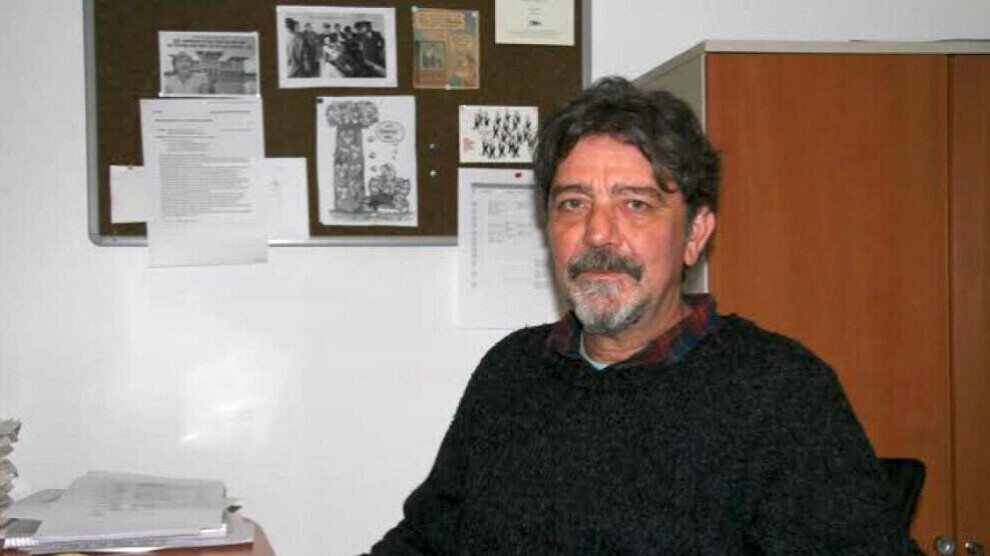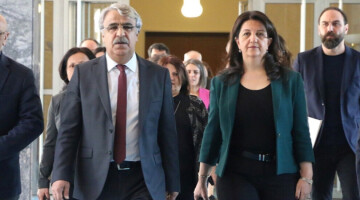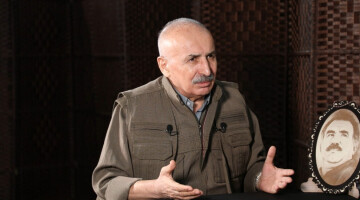The upcoming US elections dominate the media discourse. After the assassination attempt on Donald Trump, it seemed as if the Republicans' victory was certain. With Joe Biden's withdrawal and the highly likely candidacy of Kamala Harris, the Democrats' chances have improved.
After the recent NATO summit, questions about the direction of the US, Turkey and Ukraine policy remain unclear. However, there are certain lines that are emerging in the event of a potential election victory for the Democrats or Republicans.
In an interview with ANF, academic Zafer Yörük commented on possible developments, particularly with regard to the Ukraine war and the balance of power in the Middle East.
The assassination attempt on Trump gave the Republicans a strong boost. Biden's withdrawal and the likely candidacy of Kamala Harris seem to have changed the balance again. How do you assess these developments?
It is not yet certain, but we will see the votes for Kamala Harris' candidacy in the near future. We do not yet know what strategy Trump will use against her. His statement that she will be an easier opponent for him is not true. Kamala Harris is expected to be a very difficult competitor for Trump. So you cannot say that the Democrats cannot win again. They can win. The next president could be Kamala Harris, but it could be someone else. We do not know... The candidate will be announced on 19 August.
What impact would a victory of either party have on the world, especially if we look at the results of the NATO summit? What would this mean for Ukraine policy?
Regardless of who becomes president, we should not forget that the US has a raison d'etat. It is a strategy and policy that goes beyond presidents. Of course, different approaches by governments can slow down, speed up, change, etc. this strategy. For example, since the beginning of the Ukraine war (2022), Trump has claimed: ‘I will end this war.’ We do not know what kind of end it will be. But he is acting primarily according to his economic ideas.
What do you mean by that?
Trump has the perspective of investing economic resources not in world politics and development but in the US economy. He doesn't want to spend money on wars that don't bring profit. Because Trump sees the situation more like a businessman. He looks at what he can get from Ukraine. But there doesn't seem to be any concrete gain here, beyond preventing Russia's expansion. That's why he will probably give Crimea and Donbas, the regions that Russia has annexed at the moment, to Russia and say that Ukraine should be content with the rest.
The situation is this: Hungarian Prime Minister Viktor Orban met with both Putin and Trump immediately after the NATO summit. It can be assumed that the adoption of the aid package for Ukraine by the US Congress in line with Zelensky's demands, the support for Ukraine in the final declaration of the NATO summit - in which NATO membership was being considered - and the decision on long-range missiles made Putin very uneasy. Orban's trip seems to be a kind of appeal to calm Putin and prevent him from expanding the war. Of course, these are only assumptions. It seems as if the aim was to create an atmosphere that Trump would come and then everything would be sorted out. Because he met with Trump immediately after the meeting with Putin. After all, Trump is not the president, not the vice president. But Orban had a meeting with Trump in Florida. There are even rumors that he informed Turkish President Erdoğan about this meeting in advance.
In fact, Orban seems to be pursuing a similar policy with Turkey. Could Hungary take Turkey's place in mediations with Russia?
Erdoğan was very interested in playing a mediating role. However, Putin's spokesman Dmitry Peskov stated unequivocally that ‘there can be no talk of Turkey playing a mediating role.’ This means that relations between the Erdoğan and Putin governments are currently strained. No one has opposed Orban's mediation, but as I said, instead of the US government, he met with Trump, who is still only a candidate. This in some ways strengthens the possibility of peace negotiations in view of the possible election result. The most dissatisfied here will, of course, be Ukrainian President Zelensky.
Why?
The war has been going on for more than two years now, and there have been many battles and countless casualties. The Ukrainian leadership is therefore not happy about these talks. But there is nothing they can do, because it is obvious that Ukraine is waging the war with the full support of the West. Zelensky probably spends more time lobbying European countries and the US than dealing with the situation on the front lines. It is about more money for more weapons. So if the Republicans take over the US government, the fighting there should stop. But as I said, the US also has its own raison d'état. It is also unclear how satisfied the European Union and European states will be with this situation. Because the US has spread panic among European states about Russian expansionism, the Russians would expand, after Ukraine it would be the turn of the Baltic states, then Finland, Sweden and Germany... The US fueled this panic, and the European states took a position accordingly. On the other hand, the idea is gradually gaining ground that, yes, Ukraine was occupied by Russia, this is an unjust occupation, but the solution to the problem should not be to continue the war by providing Ukraine with so much aid, weapons, etc., especially in the new right, but also in certain parts of the left. It is very interesting that usually when the left comes, peace comes, but this time if the right (Republicans) wins, it seems as if the conflict situation in Ukraine will end.














